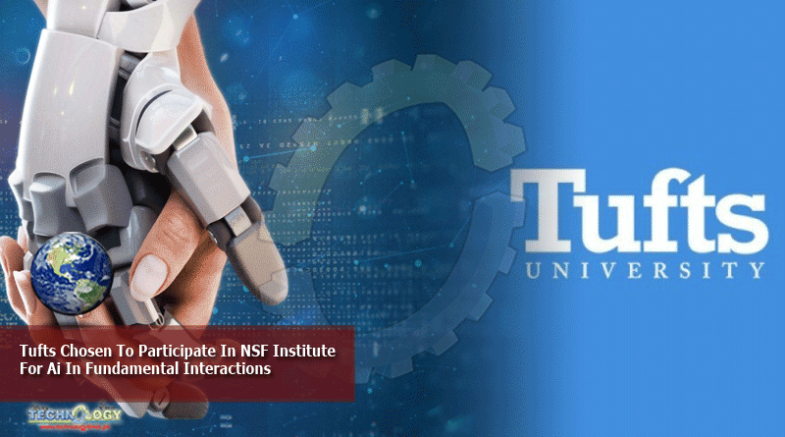Tufts Has Been Chosen To Participate In The Recently Established National Science Foundation Institute For Artificial Intelligence In Fundamental Interactions

The AI Institute is one of five announced by the NSF on August 26; the institutes are being established to secure the nation’s leadership in the field by accelerating research, expanding education, and preparing a new workforce with AI expertise.
The AI institutes, each supported by a five-year, $20 million award, will research how technologies can be used in areas such as precision agriculture, materials science, weather forecasting and more.
Taritree Wongjirad, an assistant professor of physics in the School of Arts and Sciences, will join the AI Institute Artificial Intelligence and Fundamental Interactions along with more than 25 other physics and AI researchers at Harvard, Northeastern and the MIT Laboratory for Nuclear Science, which will serve as the lead institution.Fundamental Interactions
The researchers will take a collaborative approach to develop AI methods that integrate the laws of physics in interpreting new data on phenomena such as nuclear particles and forces, gravitational waves, and the nature of dark matter.
Wongjirad will be applying AI methods to the study of neutrinos and their interactions in a type of detector known as a liquid argon time projection chamber. These detectors act like a high-resolution camera for particle interactions. One example currently taking data is the MicroBooNE detector – a large 170-ton liquid-argon filled chamber located at the Fermilab near Chicago.
“My aim is to use AI techniques to improve the accuracy of the algorithms we use to reconstruct the neutrino interactions, in particular very complicated interactions composed with many particles,” said Wongjirad. “This will help us better understand the properties of the neutrino. Longer term, I also hope that the neutrino data sets can be used to test out ideas for how to train AI to learn physical laws more autonomously.”
Studying neutrinos, sometimes referred to as “ghost particles” because they can fly through miles of matter without interacting with anything, is particularly difficult, yet may be suitable for AI applications. AI agents may be useful to sort through tremendous amounts of noise to find the faint hints of an actual neutrino passing through the detector.
This news was originally published at tufts.edu
